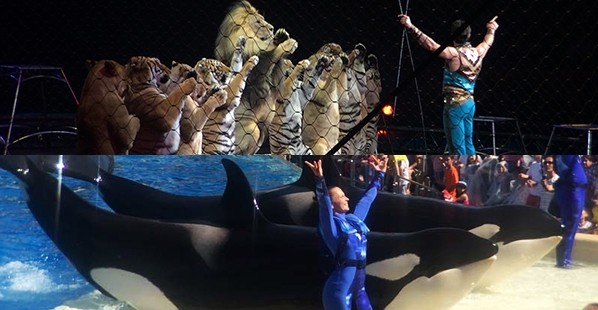4 Things Pet Stores Don’t Want You to Know
Pet stores cause countless dogs, cats, birds, rabbits, reptiles, and other animals to endure extreme pain and suffering. Here are four reasons why you should NEVER buy an animal from a pet store:
1. Most animals sold in pet stores come from breeding mills.
Ever wonder where puppies, kittens, and other animals in pet stores come from? Most of them are born at breeding mills—places where animals are forced to give birth over and over again, only to have their babies taken away so that they can be sold to pet shops. 🙁
 FreeImages.com/vee bee
FreeImages.com/vee bee
All caged birds were either captured or bred in captivity. Like puppy and kitten mills, there are huge factories where thousands of exotic birds are kept in small, dirty cages without enough room to unfold their wings. Similarly, almost all saltwater fish sold in stores are captured from their homes in the wild, and most freshwater fish are raised on farms under miserable conditions.

Before they’re torn away from their mommies, dogs, cats, and other animals are forced to live in horrible conditions at these mills. Many live in cramped, uncomfortable cages, chained outside all day long or kept alone.
As a result of being confined for most of their lives, many animals become very stressed and anxious. They claw at cage openings, pace back and forth all day, fight with each other, and even refuse to eat.

Most animals in puppy mills and other breeding facilities usually aren’t given proper food, water, or veterinary care and are often sick by the time they get to pet stores. When female animals are too old or tired to have any more babies, they are sold or killed.
2. Most exotic animals die before reaching pet stores.
The journey for many exotic animals in the pet trade, like lizards and snakes, begins in places outside the U.S., such as Africa, Australia, and the jungles of Brazil. Can you imagine being ripped from your family and shipped across the world scared and alone?

The shipping process for exotic animals is a miserable one. They’re stuffed into tiny, filthy cages and refused proper food, water, and even air. Some animals are even kept in pillowcases or soda bottles.
Sadly, most exotic animals die before arriving at pet stores. The sale of exotic animals is also unsafe for people and the environment since many of them carry dangerous diseases.
3. The journey to pet stores is a nightmare.
Exotic animals aren’t the only ones who experience extreme pain and even death on their journey to pet stores. Other animals, including mice, rats, guinea pigs, and hamsters, often arrive dying from starvation, very ill, pregnant, or injured. Many animals are forced into tiny boxes and containers and suffer for days before being unpacked from the containers they were shipped in.

Fish, including bettas, are transported in tiny plastic bags and stuffed into cardboard boxes. During one investigation, PETA discovered more than 100 iguanas in a shipping crate who had been left without food or water for weeks after the order for them was canceled. Half of them were dead.

4. Pet stores treat animals like merchandise.
Once animals arrive at pet stores, they’re unloaded into cages, priced, and sold like products, not treated like living, feeling beings who would rather be just about anywhere else.

Small animals, such as rats and reptiles, are forced to live in severely crowded boxes, where they often have no choice but to stand on top of each other. Fish are meant to have entire oceans and lakes to explore, but in pet stores, they circle endlessly in tiny tanks. Birds are put on display in cages, where they can barely stretch their wings, much less fly. The stress of life in a metal box even causes some birds to attack and kill their cagemates.
Sick and dying animals are often left to starve, tossed in the trash, or shoved into freezers while they’re still alive.
What You Can Do
Pet stores send the message that animals are only worth what we’re willing to pay for them—which, as you know, is NOT OK. As if that weren’t bad enough, every time an animal is purchased from a pet store, an animal in a shelter loses his or her chance at a loving forever home.

The good news? YOU can help countless animals by NEVER visiting or buying animals from pet stores or breeders. Spread the word so that others will know to do the same, and you’ll be a hero for animals!




Under 13? Ask your parents bee-fore you continue!